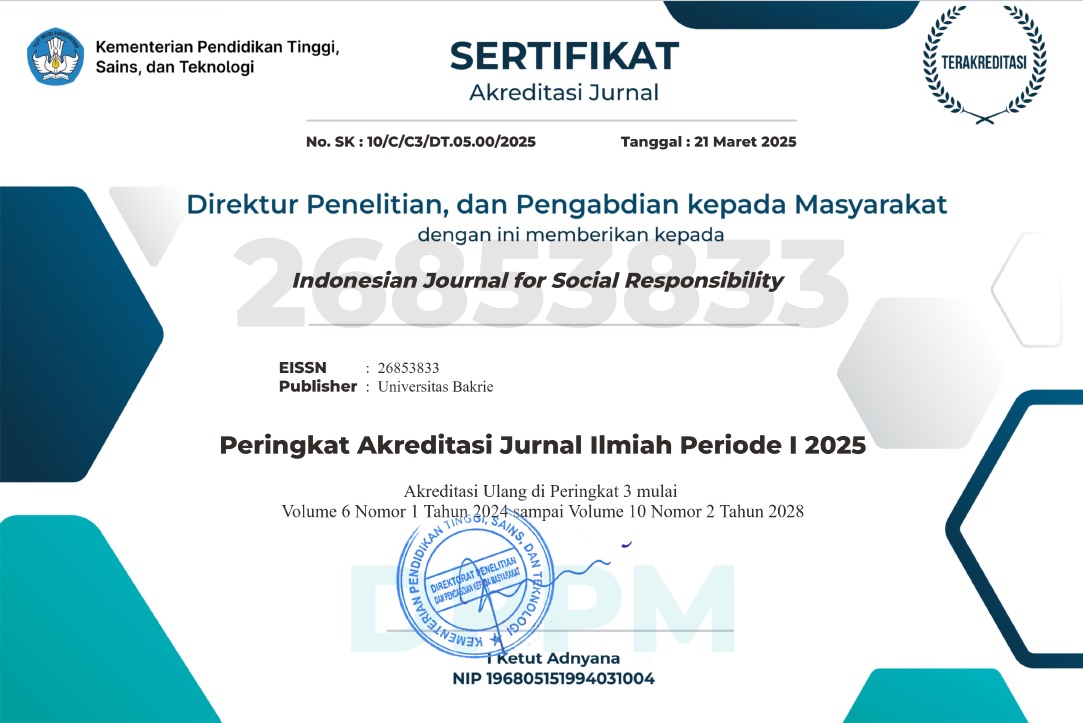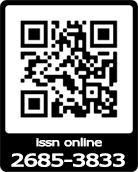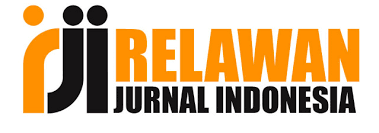Literasi Digital dalam Pembentukan Self-Esteem dengan Berwawasan Kebangsaan Nasional di Sekolah Teman Belajar Cipinang Jakarta Timur
DOI:
https://doi.org/10.36782/ijsr.v3i02.88Keywords:
Digital Literacy, Culture, National Insight, Social Media, Self-EsteemAbstract
Advances in digital technology during the Covid-19 pandemic turned out to have an important role in communication and information. However, the limited space for movement due to the extended PPKM provides opportunities to access social media in a short time. The intensity of using social media for too long can affect the mental health of themselves not only in adolescents, it can also affect children at an early age. This Community Service Activity (PkM) was carried out at the Sekolah Teman Belajar, Cipinang East Jakarta, where there was still a lack of knowledge about the use of social media and lack of awareness of parents in assisting their children. The purpose of the service activities carried out is to provide understanding through digital literacy methods in the formation of self-esteem with national insight. The implementation method is carried out in the form of providing assistance and training to students by involving the parents of students. Then, provide an understanding of digital parenting, where as parents must also follow the development of content packaged through social media. In addition, students who are still at an early age are introduced to wayang characters, namely Arjuna and Srikandi which are packaged through animated videos. The results of the activity showed that the participants understood the explanation given by the facilitator. Then with an interactive experience sharing approach that implements 5W + 1H there is self-disclosure to students, in this case they want to make story ideas which later on from the results of the story ideas are depicted in the animated video of Arjuna and Srikandi as icons of my friends. The process of making story ideas is a process of forming self-esteem, then participants are equipped to invite families to create entertaining content by raising cultural values as the theme on both TikTok and Instagram, this aims as an effort to form national identity.
Downloads
References
Ahmadi, Dadi (2008). Interaksi Simbolik. Jurnal Mediator, 9(2), 301–316.
Aziz, R. M., Syam’aeni, M. A., Sya’baniyah, N., & Fatihah, I. C. (2020). Peningkatan Kemampuan Literasi Digital bagi Siswa Kelas 4 dan 5 SDN Tanjakan 3, Kabupaten Tangerang. Jurnal Pengabdian Pada Masyarakat, 5(1), 141–148.
Baumeister, R. F., & Vohs, K. D. (2016). Handbook of Self-Regulation : Research, Theory and Application 3rd Edition. New York: The Guilford Press.
Belshaw, D. (2011). What is Digital Literacy? A Pragmatic Investigation [Tesis]. University of Durham, Durham.
Budiarti, A., Arini, D., Hastuti, P., Ernawati, D., Saidah, Q., Fatimati, I., Faridah, & Dewinta. (2021). Edukasi Kesehatan Pencegahan Covid-19 Dalam Perubahan Pengetahuan Masyarakat Kalipecabean Sidoarjo. Jurnal Pengabdian Kepada Masyarakat, 1(2), 213–218.
Jenkis, R. (2018). Generation Z vs. Millennials: The 8 Differences You Need to Know. Diakses dari https://hrdailyadvisor.blr.com/2017/09/25/generation-z-vs-millennials-8-differences-need-know/
Limilia, P., & Aristi, N. (2019). Literasi Media dan Digital di Indonesia: Sebuah Tinjauan Sistematis. Jurnal Komunikatif, 8(2), 205-220.
Nikmarijal, & Ifdil. (2014). Urgensi Peranan Keluarga bagi Perkembangan Self-Esteem Remaja. Jurnal Konseling dan Pendidikan, 2(2), 19–24.
Potter, W. J. (2010). The State Of Media Literacy. Journal of Broadcasting and Electronic Media, 54(4), 675–696.
Putri, D., & Listriani, D. (2021). Perkembangan Peserta Didik Sebuah Tinjauan Teori dan Praktis (Mendorong Kemandirian Gen Z Melalui Komunikasi Antar Pribadi Untuk Meningkatkan Self-Efficacy saat Pandemi Covid-19). Bandung: Widina Bhakti Persada.
Rakhmat, J. (2018). Psikologi Komunikasi. Bandung: Simbiosa Rakatama Media.
Ratana, M. (2018). Pengaruh Social Media Marketing terhadap Ekuitas Merek (Program Crowdscourcing Foto Periode 18 Juli 2016 – 2 April 2017 di Instagram). Jurnal Studi Komunikasi dan Media, 22(1), 13–28.
Refnadi, R. (2018). Konsep Self-Esteem serta Implikasinya Pada Siswa. Jurnal EDUCATIO: Jurnal Pendidikan Indonesia, 4(1), 16-22.
Saleh, G., & Pitriani, R. (2018). Pengaruh Media Sosial Instagram dan WhatsAp terhadap Pembentukan Budaya “Alone Together”. Jurnal Komunikasi, 10(2), 103-114.
Samovar, L., Porter, R., & McDaniel, E. (2013). Komunikasi Lintas Budaya. Jakarta: Salemba Humanika.
Badan Pusat Statistik. (2017). Kajian Aktual Penguatan Wawasan Kebangsaan dan Ketahanan Nasional Pada Generasi Muda Terhadap Pengaruh Budaya Asing, 2017. Distem Informasi Rujukan Statistik. Diakses dari https://sirusa.bps.go.id/sirusa/index.php/sektoral/view?kd=14079&th=2017
Tulgan, B., & Rainmaker. (2013). Meet Generation Z : The Second Generation within The Giant "Millennial" Cohort. Diakses dari http://rainmakerthinking.com/assets/uploads/2013/10/Gen-Z-Whitepaper.pdf
Wood, J. T. (2014). Communication Mosaics: An Introduction to the Field of Communication Seventh Edition. USA: Wadsworth.















